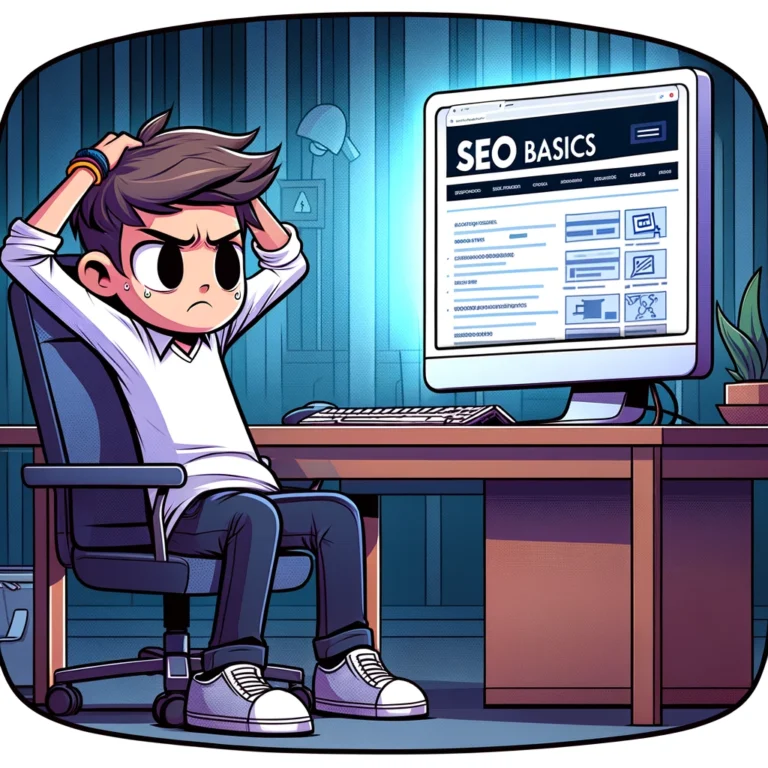Search Engine Optimization (SEO) is an integral part of any digital strategy, where the aim is to improve visibility and drive traffic to your website organically. Among the myriad of factors that influence SEO rankings, domain age and authority stand out due to their significant impact. This article delves into these components, explaining their roles and how they contribute to your SEO success.
What is Domain Age?
Domain age refers to the length of time a domain has been registered and active. It is often considered a trust factor by search engines, under the assumption that older domains are more reliable and have a history of providing valuable content. However, it’s not just about how old your domain is; it’s about what you’ve done with it during that time.
Why Does Domain Age Matter?
- Trust and Credibility: Older domains are seen as more trustworthy. A domain that has been around for a decade or more is likely to have established a reputation.
- Link Accumulation: Older websites have had more time to accumulate backlinks, which are vital for SEO. More backlinks typically lead to better rankings.
- Content Richness: With age, most websites grow in content depth, providing more value to visitors and more clues for search engines to assess their relevance.
However, it’s crucial to note that domain age alone won’t lead to top rankings. Its impact is modest and must be considered alongside other SEO best practices.
Understanding Domain Authority
Domain authority (DA) is a metric developed by SEO software companies, intended to predict how likely a website is to rank in search engine results pages (SERPs). It’s calculated based on multiple factors, including linking root domains and the number of total links, into a single DA score. This score can then be used when comparing one site to another or tracking the “ranking strength” of a website over time.
Factors Influencing Domain Authority
- Link Profile: This includes the number of backlinks and the quality of the links. High-quality backlinks from reputable sites significantly boost DA.
- Site Structure: A well-organized site that is easy to navigate helps in achieving a higher DA.
- Content Quality: High-quality, relevant, and regularly updated content is favored by search engines and boosts authority.
- Social Signals: Engagement on social media can influence DA as it reflects content validity and quality to some extent.
The Impact of Domain Authority on SEO
A higher domain authority is correlated with higher rankings in search results. This isn’t because DA directly influences rankings, but because the factors that increase DA (such as a robust link profile and quality content) are the same factors that improve your SEO.
Balancing Domain Age and Authority
While both domain age and authority are important, they need to be balanced with comprehensive SEO strategies that include technical SEO, on-page optimization, and content marketing. Here are some strategies to enhance both aspects:
- Consistent Content Updates: Regularly updating your website with relevant and valuable content can attract more visitors and encourage more sites to link to your content.
- Link Building: Focus on earning high-quality backlinks from authoritative websites. Guest blogging, collaborations, and being featured in reputable directories can help.
- Engage on Social Media: Active social media engagement can not only drive direct traffic but also indirectly impact your SEO by increasing your content’s visibility and shareability.
- Improve User Experience: Ensure your site is easy to navigate, loads quickly, and is secure. A positive user experience can lead to more links and longer visit durations, both of which can increase your site’s authority.
Understanding the roles of domain age and authority in SEO is crucial for any digital marketer or business owner. While neither factor alone will guarantee SEO success, they are important indicators of how search engines might perceive the quality and reliability of a website. By focusing on enhancing these elements alongside other SEO tactics, you can build a strong foundation for your site’s long-term online visibility and success.

The Long-term Benefits of Focusing on Domain Age and Authority
Focusing on domain age and authority can provide long-term benefits to your SEO efforts. By investing in these areas, you set the stage for sustainable online growth and a stronger web presence.
Building a Trustworthy Brand
A domain that ages while maintaining a steady improvement in content and user engagement becomes synonymous with reliability and trust. Users, and by extension, search engines, start recognizing the website as a reputable source. This reputation, built over time, makes your website a go-to resource, potentially increasing direct traffic and repeat visitors, which are positive signals to search engines.
Gradual Improvement in Search Rankings
Websites with older domains and higher authority are more likely to see gradual improvements in their search rankings. As Google and other search engines value the trustworthiness and credibility of a domain, these sites often benefit from higher visibility in SERPs. This visibility then translates into more organic traffic, creating a virtuous cycle of growth and further authority enhancement.
Enhanced Competitive Edge
In highly competitive niches, having an older, authoritative domain can be a critical differentiator. Newer domains might struggle to compete with the established trust and resource base of an older domain. By maintaining a focus on growing your domain’s authority through strategic SEO practices, you can secure a competitive advantage that is challenging for newer entrants to overcome.
Strategic Considerations for New Domains
For new domains, building age and authority from scratch can seem daunting. However, with the right strategies, it’s possible to accelerate this process and establish your domain as an authority faster than traditional methods might suggest.
- Rapid Content Deployment: Launch your website with a solid base of high-quality, comprehensive content. This not only starts building your domain’s credibility but also engages visitors right from the start.
- Strong Initial Link Building: Focus on getting high-quality backlinks early in your website’s life. Collaborate with established brands and leverage networks that can provide authoritative links to boost your site’s perceived trustworthiness.
- Utilize Social Proof: Leverage social media to create buzz around your content. Use influencers and brand advocates to increase your content’s reach, which can lead to natural link building and increased authority.
Keeping Up with Algorithm Changes
Search engine algorithms are constantly evolving, and what works today might not work tomorrow. Staying informed about the latest changes and adapting your strategies accordingly is crucial. This adaptive approach not only protects your site from potential penalties but also ensures that your SEO tactics remain effective.
Regular Audits
Conduct regular SEO audits to ensure that your website complies with the latest search engine guidelines and best practices. Audits help identify issues that could be impacting your site’s performance, allowing you to make necessary adjustments to maintain or improve your ranking.
Continuous Learning
The field of SEO is always changing, so continuous learning is essential. Stay engaged with SEO communities, attend webinars, and read the latest research to keep up-to-date. Applying new knowledge to tweak your approach can help maintain your site’s relevance and authority.
Conclusion
While the influence of domain age on SEO may be modest, it is still a valuable aspect of building a trusted and successful website. Domain authority, on the other hand, requires ongoing effort and adaptation to maintain and can significantly impact your site’s visibility and traffic. Together, these factors play a crucial role in the overall success of your SEO strategy.
By prioritizing both domain age and authority, along with adapting to the dynamic nature of SEO, you can enhance your site’s ability to compete effectively in the digital landscape, driving long-term success.
References
- Moz. “Domain Authority: How Does It Impact Your SEO?” Moz. Available at: https://moz.com/learn/seo/domain-authority
- Patel, Neil. “The Importance of Domain Age for SEO and How It Affects Rankings.” Neil Patel Blog. Available at: https://neilpatel.com/blog/domain-age/
- Search Engine Journal. “How Important Is Domain Authority in SEO?” Search Engine Journal. Available at: https://www.searchenginejournal.com/significance-of-domain-authority/368857/
- Yoast. “What is Domain Authority?” Yoast SEO Blog. Available at: https://yoast.com/what-is-domain-authority/



